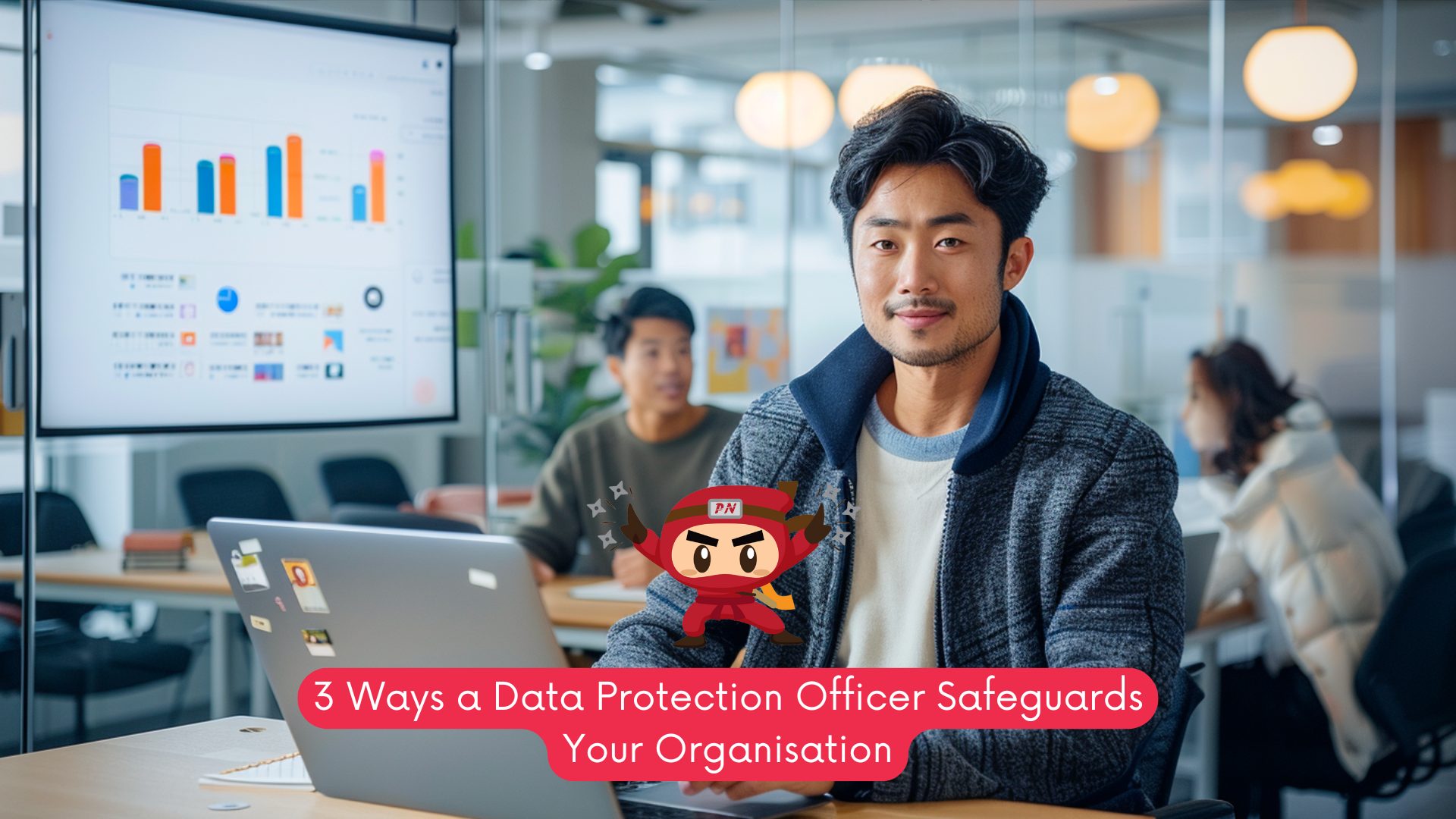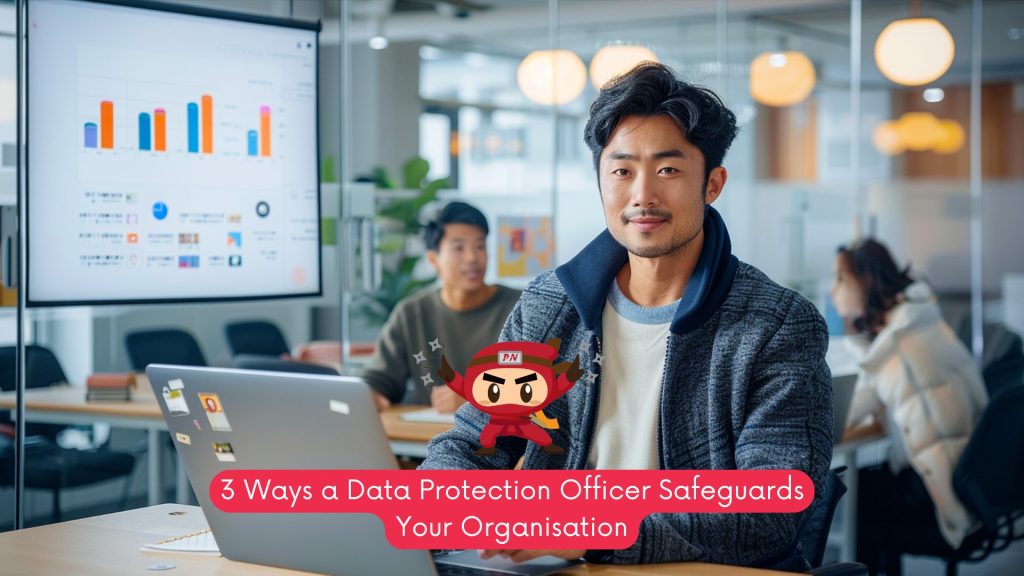KEEP IN TOUCH
Subscribe to our mailing list to get free tips on Data Protection and Cybersecurity updates weekly!







In today’s hyperconnected digital environment, organisations handle massive volumes of personal data on a daily basis. From customer information and employee records to supplier details and operational data, the stakes for protecting this information have never been higher.
For businesses operating in Singapore and across the globe, compliance with data protection legislation such as the Personal Data Protection Act (PDPA) is not optional. One of the most effective ways to achieve and maintain compliance is through the appointment of a Data Protection Officer (DPO), a role designed to ensure that data handling practices are safe, lawful, and transparent.
A DPO serves as both a guardian and a bridge, combining legal, operational, and technical responsibilities. Unlike generic compliance officers, a DPO is specifically mandated to oversee the protection of personal data, liaise with regulatory authorities, and provide guidance to employees on the proper handling of sensitive information. Their role has become increasingly critical as cyber threats, regulatory scrutiny, and public awareness around data privacy intensify.
At the heart of the DPO’s responsibilities is ensuring that an organisation adheres to data protection laws. This goes beyond merely following a checklist or filing reports. The DPO evaluates internal processes, audits data flows, and confirms that personal information is collected, stored, and used in accordance with relevant regulations. In Singapore, the PDPA sets strict rules on the purpose, accuracy, and retention of personal data, and breaches can result in substantial fines and reputational damage.
The DPO also proactively identifies potential compliance gaps, implementing policies and controls to mitigate the risk of data misuse or accidental exposure. By staying abreast of updates to legislation and emerging trends in cybersecurity and data privacy, the DPO ensures that the organisation’s data practices remain current and defensible. In effect, the DPO acts as the company’s legal safeguard, providing assurance to both leadership and regulators that data protection obligations are being met.
Compliance alone is insufficient without employee understanding and engagement. Human error is often the weakest link in data security, whether it’s through phishing attacks, misconfigured systems, or improper document handling. The DPO fills the critical role of adviser and trainer, equipping staff with the knowledge and tools needed to protect personal data in their day-to-day tasks.
This includes conducting workshops, issuing guidance on secure communication methods, and providing updates on new risks such as AI-enabled phishing, ransomware campaigns, or evolving cloud security challenges. By fostering a culture of awareness and accountability, the DPO reduces the likelihood of breaches caused by internal mishandling. Employees gain confidence in managing sensitive information, while leadership benefits from knowing that operational staff are informed and prepared.
Moreover, the training extends to understanding the lifecycle of data within the organisation. Teams are instructed on how to manage access rights, handle consent, and ensure proper data retention and disposal. This practical guidance translates complex legal requirements into actionable behaviours, bridging the gap between regulatory expectations and everyday operations.
In the unfortunate event of a data breach, time is critical. The DPO acts as the central point of contact for both internal teams and external authorities, including regulators such as the Personal Data Protection Commission (PDPC) in Singapore. This role involves coordinating responses, facilitating timely reporting, and ensuring that corrective measures are implemented efficiently.
Being the intermediary between the company and regulatory bodies also means that the DPO can provide expert advice on incident management, helping limit reputational damage and regulatory repercussions. They guide organisations through notification procedures, assess the scope of affected data, and recommend containment and recovery strategies. In essence, the DPO ensures that the company responds in a structured, compliant, and effective manner.
Beyond crisis situations, the DPO also serves as a liaison for ongoing communications with regulators and industry bodies, helping the organisation understand evolving requirements and best practices. This proactive engagement enhances credibility with stakeholders, demonstrating that data protection is treated as a strategic priority rather than a mere compliance exercise.
In an era where data breaches are headline news and consumer trust is paramount, the DPO role is no longer optional for organisations that handle significant volumes of personal data. The position integrates compliance, advisory, and operational functions, ensuring that companies are prepared for both everyday data management and extraordinary incidents.
Organisations without a dedicated DPO risk fragmented responsibility, inconsistent training, and delayed breach responses. This not only exposes them to regulatory fines but also threatens customer trust and business continuity. By investing in a DPO, organisations institutionalise accountability, embed privacy practices across teams, and strengthen their overall cybersecurity posture.
Privacy Ninja is a Singapore-based data protection and cybersecurity consultancy that provides comprehensive DPO-as-a-Service. For companies that may not have the resources to appoint a full-time DPO, Privacy Ninja offers certified experts who can fulfil all statutory and advisory functions. Our services include compliance audits, staff training programmes, policy development, and incident response coordination.
In addition to DPO services, Privacy Ninja complements organisational readiness with Vulnerability Assessment and Penetration Testing (VAPT) to identify weak points in systems and processes, and Data Breach Management support to ensure rapid, structured responses to incidents. By partnering with Privacy Ninja, organisations can achieve continuous compliance, reduce operational risk, and maintain public trust while navigating the complex regulatory and cyber threat landscape.
With Privacy Ninja’s support, companies are not just fulfilling regulatory obligations but are adopting proactive strategies that integrate compliance, employee training, and operational resilience. A capable DPO, whether internal or provided through a trusted partner, is critical for any organisation committed to protecting personal data in an increasingly digital world.